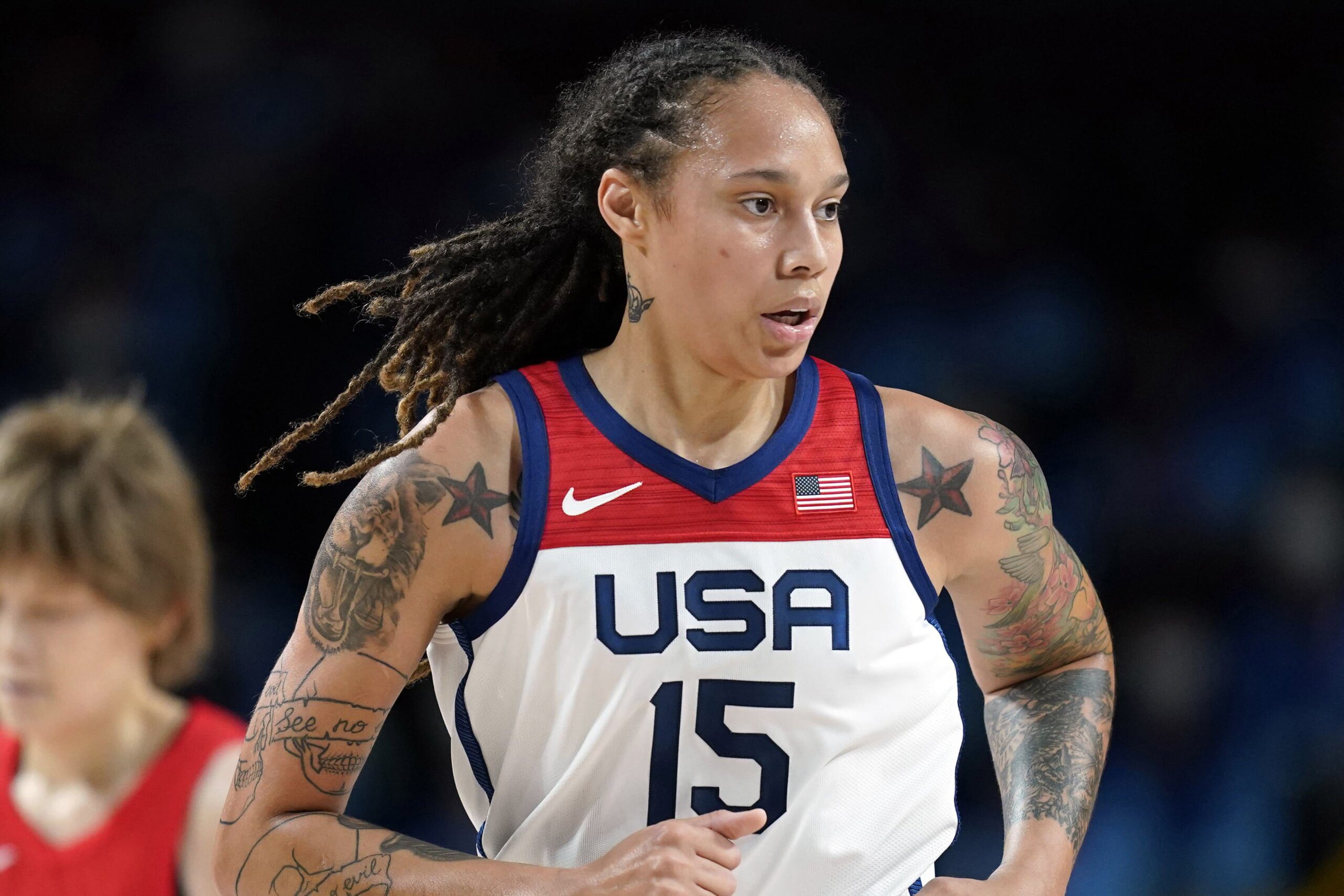Brittney Griner spent her first weekend back in the United States after being held in detention in Russia for 294 days. Her release was not without controversy: the Biden administration exchanged an infamous 55-year-old Russian arms dealer, Viktor Bout, for the WNBA star.
While Griner has not yet spoken out about what she has experienced while in detention, conditions in Russian prisons and detention centres can be harsh and life-threatening, according to a 2021 report from the U.S. Department of State. The report found that overcrowding, food shortages, inadequate sanitation, lack of access to healthcare and abuse by guards and inmates are common.
Mental health experts say it will be a challenge for the two-time Olympic gold medalist to transition into whatever her new normal will be. Luckily, she has plenty of people—including family, friends and fans—who support her. Unfortunately, not every American has expressed support, with many arguing her exchange for Bout was a poor decision on the part of Biden’s administration. But was this criticism really about Biden, Bout or a lack of empathy for Griner, who happens to be a Black queer woman?
Pennsylvania Republican Congressman Scott Perry tweeted: “So @POTUS just traded an enemy who smuggles guns and helps shoot Americans for an American who smuggles drugs and shoots basketballs, all while a former US Marine, Paul Whelan, rots in a Russian prison. Let that sink in. #FreePaulWhelan.”
Americans have a long history of failing to empathize with marginalized groups, and few are willing to examine this within themselves. Take a look at the photo below this story’s headline. Chances are, if you are a Black queer woman, you feel empathy at seeing a face that reminds you of yourself, your friends and family.
But for those who don’t wear any of these labels and don’t feel empathy, take a moment and consider why.
Spend a few minutes on social media and you will quickly come across some stunning examples of Americans who lack empathy for Griner, including some who are intentionally misgendering her. Thankfully, some social media users are speaking out against the cruelty.
It’s a painful reminder that people typically only extend empathy to those most like themselves. For this reason, most will not empathize with Griner, who is not only Black and queer, but also a gender nonconforming woman who is 6’9”.
Despite this, it’s important to note that reactions to her release have been overwhelmingly positive, with the most joyous reactions coming from the queer community.
For example, the National Black Justice Coalition, a Black LGBTQ2S+ civil rights group, issued a statement that said, in part: “Brittney is an icon not only to Black LGBTQ+/SLG [same gender loving] community, but to people around the world. Now, she has also become a symbol of hope for the many other people who remain wrongfully detained abroad and the families who remain broken until their loved ones return home.”
Additionally, tweets of support came from many LGTBQ2S+ leaders, including former NBA player Jason Collins and president and CEO of GLAAD, Sarah Kate Ellis.
But politics often override humanity, and nowhere is that more clear than on social media.
I’m one of many journalists who use social media to gauge feelings and sentiments. Combined with in-person interviews, casual conversations and op-eds, social platforms can help users find perspectives beyond their geographic location and social circles.
Examining the responses to Griner’s release, there seemed to be three main points of anger: Some are upset that the exchange did not include detained American Paul Wheelan, the former marine who was discharged for his conduct in 2008. Others think that trading a basketball player for a Russian arms dealer was an uneven exchange. And yet others are angry that Griner, who has spoken out against the systemic racism embedded in the American government and justice system, would be rescued by that same government.
While all of these beliefs make click-worthy headlines and tweets that easily go viral, not only are they flawed, but they also show how much the media still lacks empathy for those who are not white, straight and/or male.
This may have played a role in why Griner was detained for so long in the first place. As many queer people have pointed out, had a straight white male professional athlete like NFL quarterback Tom Brady been detained in a Russian prison, the public reaction likely would have been much different. And I find it hard to believe that his detention would have lasted nearly 10 months if he were the one detained.
This double standard is even more glaring when you consider why Griner, who was caught going through airport security in Moscow with hashish oil in her luggage, was detained, and the subsequent media coverage of her arrest, which often felt lacking and indifferent. Her attorney said the small amount of medical cannabis she had was prescribed by a doctor for chronic pain. Had Brady been the one arrested, the media coverage would have been deafening, and it is also unlikely that the Biden administration’s decision to make the exchange for Bout would have been nearly as controversial.
But Griner is not Tom Brady: she is a Black queer woman, and for that reason there is an expectation she needs to be perfect in order to be deserving of our compassion. This lack of empathy is similar, for example, to how people react when a trans woman is murdered: a problem that is escalating in the U.S., with 2021 being the deadliest year recorded for trans and non-binary people. When it does happen, many wonder what she did to deserve it, instead of laying the blame where it belongs: on her attacker and systemic injustices that made it possible. Similarly, much of the backlash to Griner’s release is blatant victim-blaming.
So, let’s be honest about what much of the criticism over Griner’s release is really about: a veiled and disingenuous attack on who she is. The underlying message is one that Black queer people are all too used to: that she doesn’t deserve freedom or safety, or even basic dignity and respect. And it’s a painful reminder that many Americans still have much to learn about empathy—especially when it comes to those who remind them least of themselves.


 Why you can trust Xtra
Why you can trust Xtra


